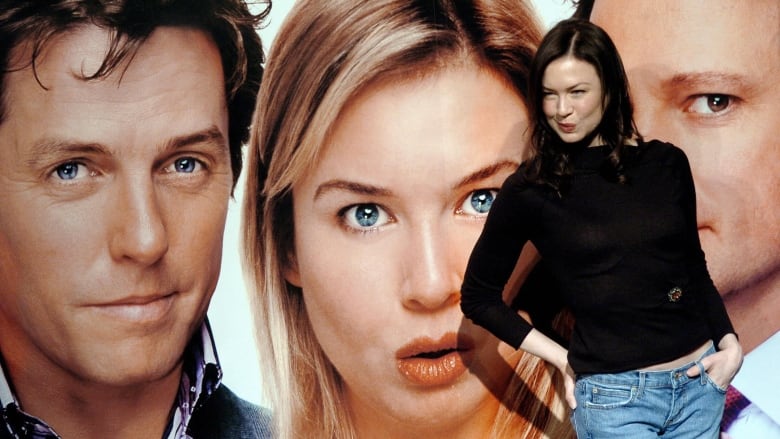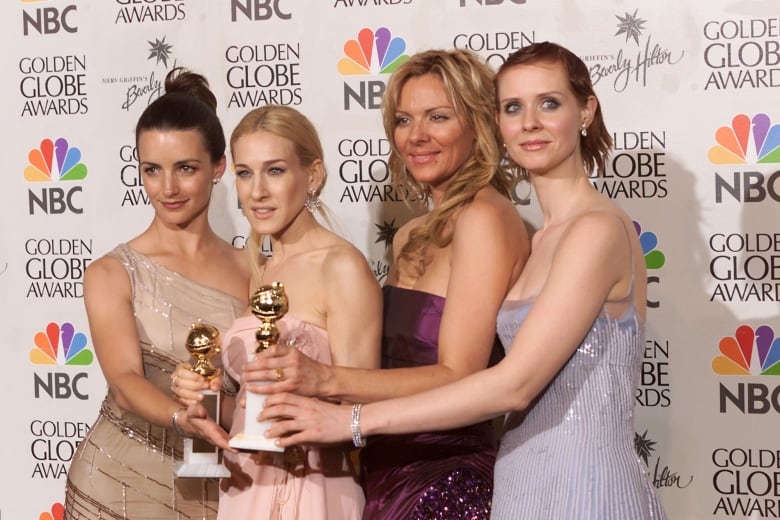Will the new Bridget Jones movie finally shed the weight obsession?
New film slated to be released in 2025 with Rene Zellweger back in title role

It's been over 20 years since Bridget Jones, weighing 136 pounds, insisted she was fat on the silver screen.
The classic 2001 romantic comedy Bridget Jones's Diary,starringRene Zellwegerin the titlerole, captivated a generation of movie-goers. Bridget was awkward, self-deprecating,single, had messy friends, embarrassing parents, an even more embarrassing love lifeand wasas she toldus before the opening credits even started to roll fat.
"I suddenly realized that unless something changed soon, I was going to live a life where my major relationship was with a bottle of wine and I'd finally die fat and alone," Zellwegersays, sitting in rumpled pyjamas, drinking vodkaandsmoking a cigarette, as the song All By Myself blastsin the background.
It was funny. It was dark. And asmany fanshave since pointed out, for a generation of women, it was, ultimately,damaging.
"I was 13 when I first watched this film, and I weighed at least a stone more than that. I remember feeling a hot flush of panic and disgust when I realized this, and silently vowed to stick to my diet better," body confidence advocate Alex Light wrote in a viral 2020 Instagram post.
She'sdescribing the moment Bridget writes her weight, 136 pounds just over 9.5stone inU.K. measurementin her diary.
As in the books by Helen Fielding, Bridget frequentlyrecords her weight in her diary andis continuously referred to as overweight throughout the first two films. In the third, where she'spregnant, her mother reacts to the newsby saying,"Wonderful, we thought you'd just got all fat again."
Meanwhile, Zellweger'sownweight was the repeated subject of scrutiny by media as she famously gained 30 pounds twice for Bridget Jones's Diary and 2004'sBridget Jones: The Edge of Reason. In Bridget Jones's Baby, the fact thatthe actor didn't gain weight made headlines. (In the 2016 movie, Bridget says she hasfinally achieved her "perfect weight.")
Now, 23 yearsafter the first film was released, there's a fourth movie in the works,which according to reportswill repriseZellwegerin the title role and be releasedon Valentine's Day 2025. But as excitement builds aboutBridget Jones: Mad About The Boy, many fans of the beloved series want to know: will the fat-shaming finally stop?
"I'm not entirely optimistic,"saidShana MacDonald, an associate professor in communication arts at the University of Waterloo who studiespop culture,social media and feminist politics.

MacDonald notes there's been a shift in a younger generation toward body positivity, inclusivity and neutrality, but that Hollywood and the general population's reaction to Hollywood movies that do pushthe needle isn't quite there yet. She points to the recent remaking of Mean Girls as an example, where actress Rene Rappwascriticized for her body.
"We have thisregressiveconversationhappening where we're seeing the casting of womenwho have muchmore fulsome, healthy figures in main roles, and getting massive backlash for that," MacDonald said.
The 'heroin chic' ideal
The original Bridget Jones movies came out during a complex time that media scholars refer to aspeak post-feministcinema, MacDonald explained.
Around the turn of the millennium, TV shows like Sex and the City and Ally McBealembraced female empowerment, but within arelationship to capitalism and consumption.And part of that was a very specific standard of weight and femininity, she said.
"We were working through the idealization of'heroin chic.' There was a really explicit emphasis on adeeply skinny idealization of femininity," MacDonald said.

Today, a younger generation of women is pushing for a healthier body image, valuing a body's abilities and aperson's non-physical characteristic more thanappearance. People call out body shamingon TikTokand embrace self love. Major clothing brands such as Joe Fresh and Gapuse more models whoare plus-sized or have limb differences,although it's worth notingthe fashion industry has been accused of "fat-washing" or "curve-washing" to give off the illusion of being inclusive.
But the ideal in Hollywood has barely budged, according to a2022 report by The Representation Project, which found only 6.7 per cent of characters in the decade'smost popular films were fat, and none of them were in lead roles. The report's authorsnote thatthey use the word fat "because it's not an insult."
They also found that fat characters are more likely to be portrayed as funny or "stupid."
"This finding reinforces the common 'Comic Relief'trope of fat people in media," the report noted.
'Perfectly normal weight'
Zellweger, for her part, has been critical about the focus on Bridget's weight. In a 2016 interview with Today about the third movie and Bridget's appearance,Zellwegersaid, "I never thought she had a weight issue."
The same year, she told Vogue magazine she never understood the scrutiny of her own weight gain to play the role.
"Bridget is a perfectly normal weight and I've never understood why it matters so much," she said."No male actor would get such scrutiny if he did the same thing for a role."
But for some who grew up loving the 2001 rom-com heroine, Bridget's obsession with her weight was harmful.
Writer Sophie Vershbow wrote ina 2021 essay in Vogue that the 2001 movie came out when she was 11 "and just learning that hating your body was a normal part of being a woman."
"How many times had I watched this movie as a teenager and internalized that my body needed fixing, too?

The careers of actors like Amy Schumer and Rebel Wilson show how our culture is still fixated on women's bodies in Hollywood.
InFebruary, around the time season twoof her show Life andBethwasreleased, Schumerwas criticizedfor having a puffy face(she later explained she has a hormonal disorder).
Meanwhile, Wilson, who often playedthe role of the funny friend in movies such as Pitch Perfect, has been widely praised for losing 80 pounds.
MacDonald, with theUniversity of Waterloo, says the recent resurgence of Hallmark-style romantic comedies doesn't make her hopeful that attitudes areshifting in the right direction. These films lean in to that same early-2000s post-feminist narrative, she explained, with the same attractive and thin leading characters.
But MacDonald also sees an exciting opportunity with the new Bridget Jones movie, which is based onHelen Fielding's third book where Bridget is a single mominher 50s: the experience of menopause.
"In a perfect world that will beintegrated into the conversation."












_(720p).jpg)


 OFFICIAL HD MUSIC VIDEO.jpg)
.jpg)



























































































